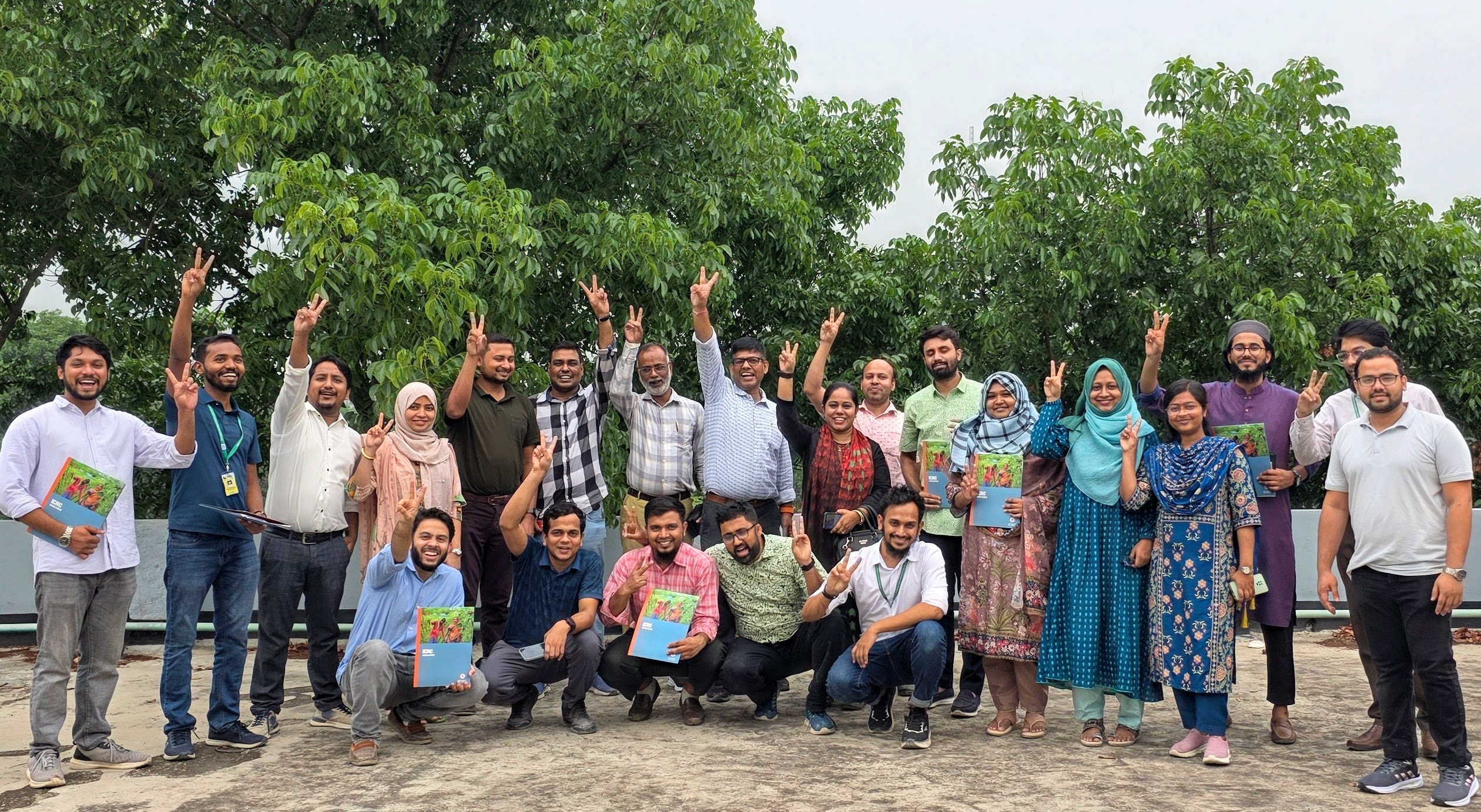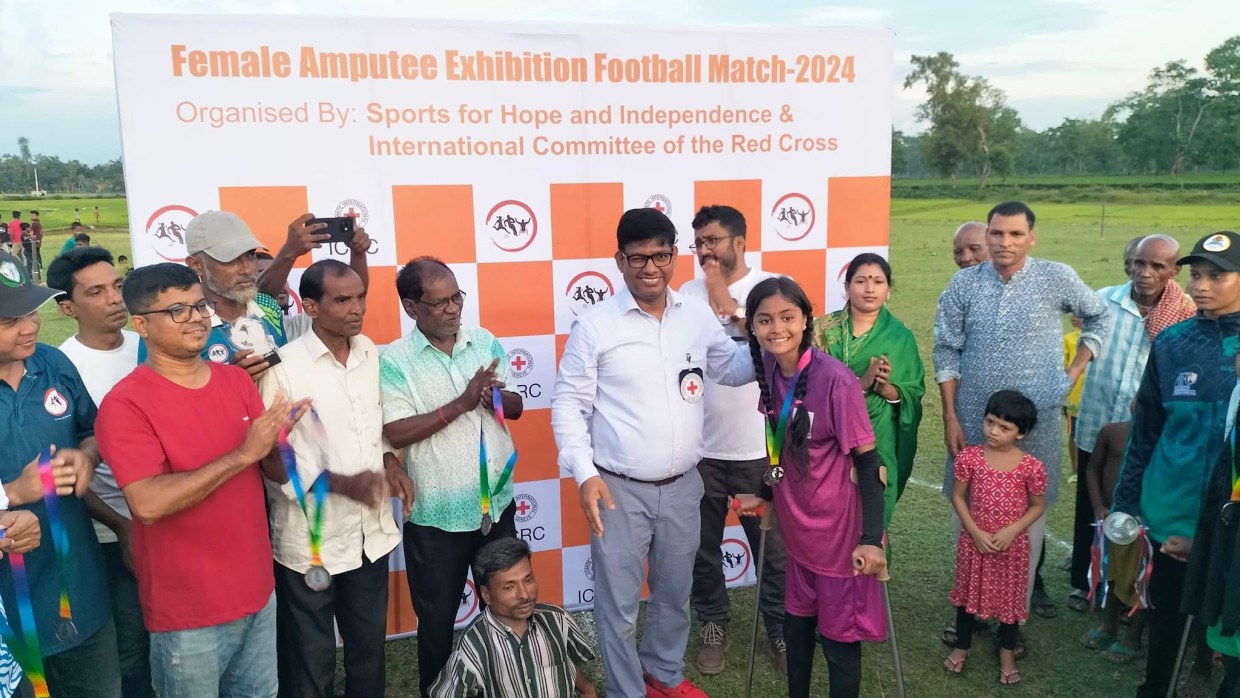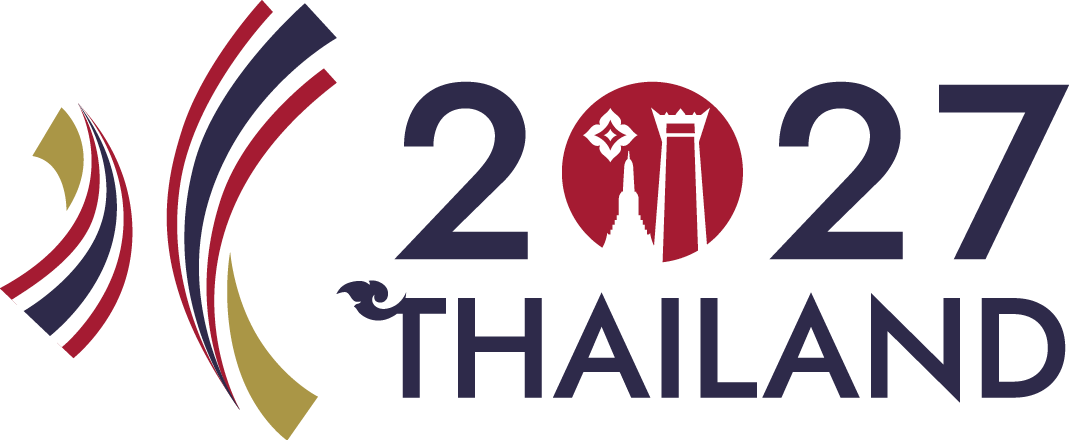News
News
Where no one else can reach: Subhash Sinha brings prosthetic and orthotic services to the most remote places in the world
For over 25 years, Subhash Sinha has been working in the less-resourced regions of Asia and Africa with one goal in mind: to enable people with disabilities to participate fully in society – with technology, system understanding and unwavering humanity. His story shows what prosthetic and orthotic services can achieve when it reaches those who need it most.
When Subhash Sinha talks about his job, it quickly becomes clear that for him, prosthetics and orthotics are not just technology – they are a responsibility. They are a calling. And they are a connection between people that needs no words. A connection made up of tools, empathy and hope.
Subhash comes from Patna, a city steeped in tradition on the Ganges in north-eastern India. He spent his childhood in modest circumstances – but with a passion for tinkering, repairing and inventing. ‘My friends called me the “Jugaad” maker,’ he says. Jugaad – in India, this means creative improvisation with limited resources. It is a principle that has accompanied him throughout his life.
He actually wanted to become an engineer. But despite hard work, he failed to gain admission to the country's top universities due to their highly selective admission policies. A stroke of bad luck? Perhaps. But it was also the beginning of a different path. When he saw an advertisement for a degree in prosthetics and orthotics one day, he knew: this was it. Technology – for people. Machines – for bodies. Innovation – for participation.
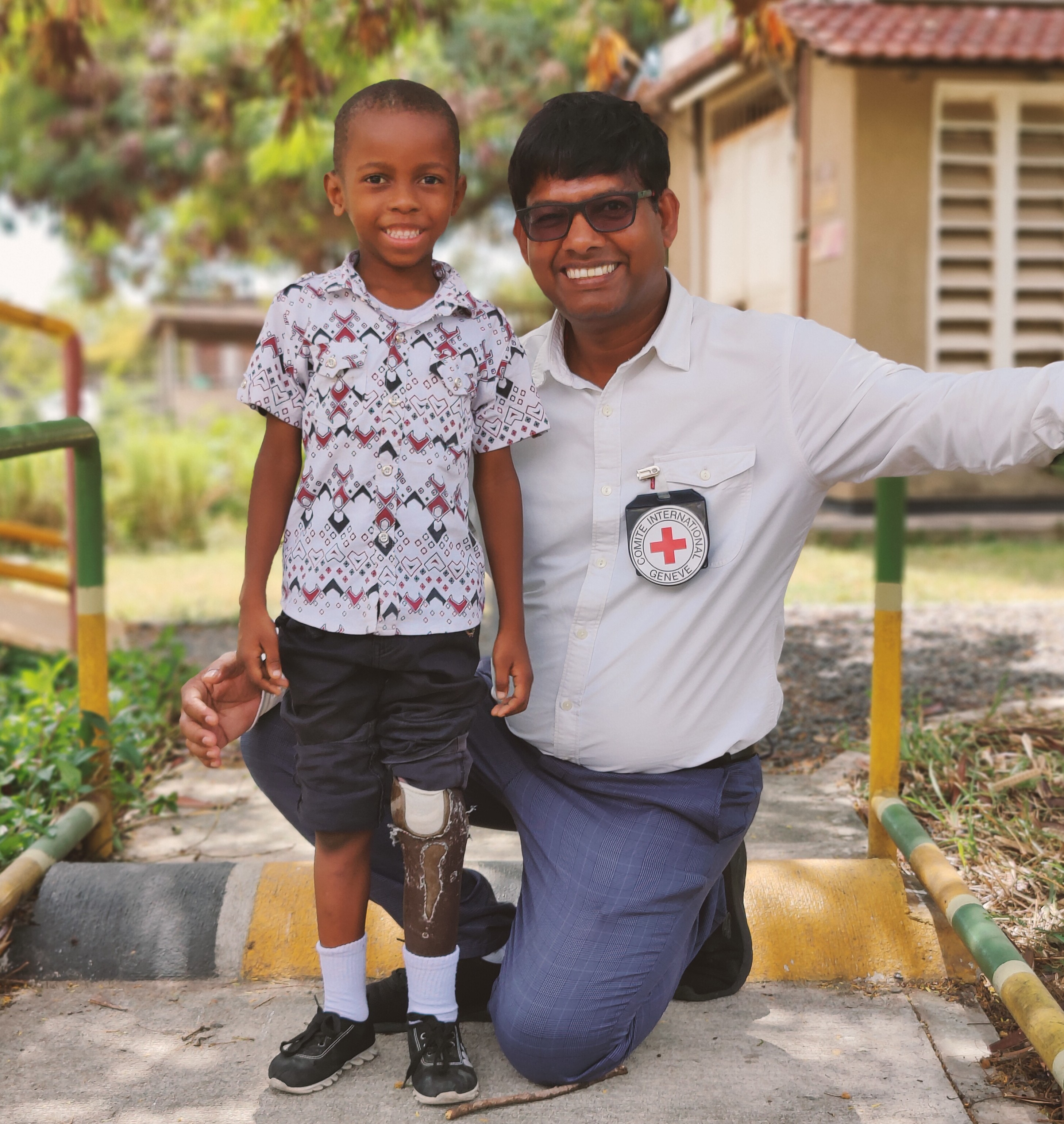
From a job to a calling
Today, more than 25 years later, Subhash Sinha can look back on an extraordinary career in prosthetic and orthotic services. He has set up centres in countries such as India, Sudan, Sri Lanka and Rwanda, trained specialist staff, helped develop national rehabilitation strategies and turned hundreds of young people into para-athletes. Always with one goal in mind: to enable people with disabilities to participate fully in life – even in regions where accessibility is unheard of.
What drives him? ‘The moment when someone can stand or walk again for the first time with the help of an assistive device that's priceless. I'll never forget that smile.’ And it is precisely these moments that take him to the remotest corners of the world.
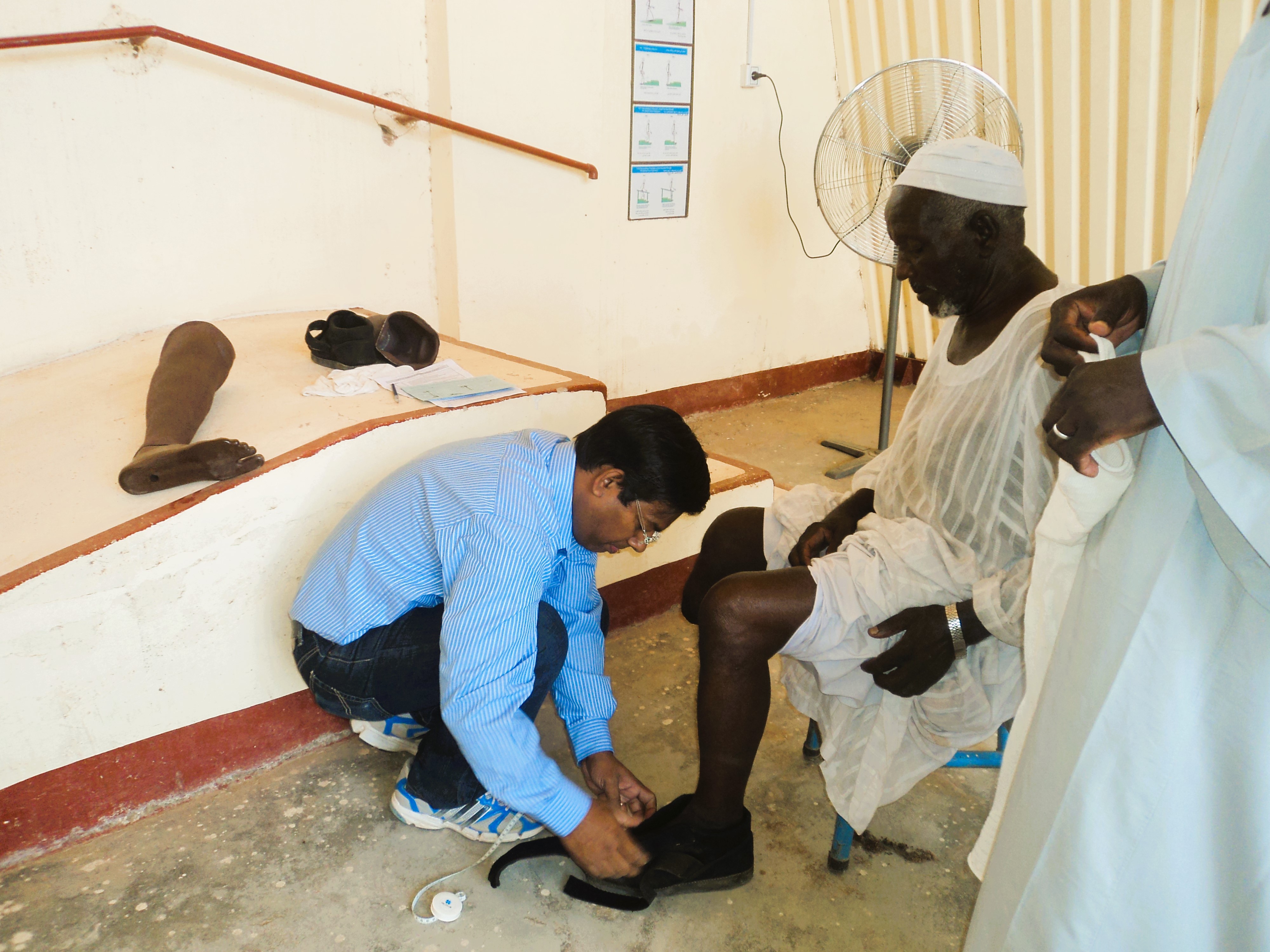
Prosthetic and orthotic services under extreme conditions
He recalls a mission in a remote conflict region of Africa where there were no water pipes – and no road network. Water was measured in ‘donkeys’ – the amount that a donkey could carry on its back. Aircraft could only land if a UN vehicle was on site to chase the animals away from the improvised landing strip. One day, this vehicle failed to arrive. The pilot pulled up at the last moment: ‘No security today.’ No landing. No treatment. No smiles.
‘That's when I realised how crucial our work is. If we don't come, no one else does,’ says Subhash, who now works for the International Committee of the Red Cross (ICRC) in Bangladesh.
As a programme manager for health and physical rehabilitation, he works at the interface between individual treatment, education and strategic system development. He trains specialists, advises ministries and develops long-term sustainable solutions with the aim of making assistive technology available to everyone who needs it.
Because for Subhash Sinha, one thing is clear: assistive devices are not a luxury. They are a human right.
Subhash Sinha at I.S.P.O. 2025 – Shaping global dialogue
At the I.S.P.O. 20th World Congress in Stockholm, Subhash Sinha plays an active role in shaping the scientific and strategic direction of the event. As a member of the Scientific Programme Committee, he contributes his decades of field experience directly to the development of the congress content.
On Wednesday, 18 June, he will present in the Poster Pitch Session 5.35 | Service and Clinical Education (Room A5, Ground floor, 3:00 PM–4:15 PM). His presentation, “A process to improve the application of hand skills post short-term training in less resourced countries", focuses on practical challenges and solutions in capacity building – a topic close to his heart and daily work.
On Thursday, 19 June, from 1:00 PM to 2:15 PM, he will contribute to the symposium “Quality and Sustainability of Prosthetics and Orthotics Education in the South and Southeast Asia Region” (Room K11, First floor). Together with experts from Cambodia, Myanmar, and India, Subhash will discuss structural approaches to education in the field of assistive technology, highlighting both regional challenges and success models.
His presence at the congress reflects his deep commitment to ensuring that education, service provision, and policy development are aligned – even and especially in low-resource settings.
